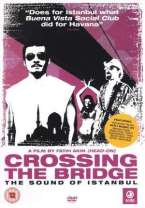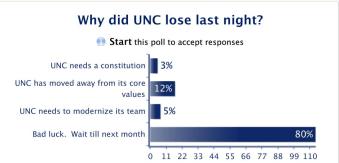 Today’s welcome video was a brief clip from the terrific film, “Crossing the Bridge–The Sound of Istanbul”
Today’s welcome video was a brief clip from the terrific film, “Crossing the Bridge–The Sound of Istanbul”
The class was tremendously enlightening. After a week that had included two public lectures in addition to the usual work, I fell back on my previous teaching style. There was so much to “cover,” what with the Urabi Revolt in Egypt, the Constitutional Revolution in Iran, and the “Young Turk” revolution in the Ottoman Empire, that I spent the whole class lecturing about the events. I tried to tie it all together by emphasizing the belief of many members of the elite that a constitution would be the silver bullet that could strengthen Middle Eastern powers to be competitive with European states. (The irony: although members of the US government pretended that they could introduce democracy through invasion at the start of the 21st century, people in the region had believed a whole century earlier that they could withstand foreign intervention if they only had constitutional regimes.)
Despite my enthusiasm for the topic and all of the techniques we teach new lecturers (moving around the room, lots of eye contact, dramatic voice changes, repeating important points), it was clear that I lost the students. This was the first time all semester that they were not engaged– some actually fell asleep. By the time the lecture was over, only one posted a question. The only student who approached me afterward asked for a glossary so they could follow better while I sprinted through events.
I suppose it was a good test of the new system. Some of the students had seemed to want more traditional lectures, and I had begun wondering about the efficacy of taking so long to focus on fewer things, unable to “cover” as much as during previous semesters. This was an eye-opening “failure”: had I focused on underlying questions, they may not have “learned” about all three constitutional efforts, but they may have remembered the big ideas. In discussions after class with the TA’s, I began thinking about how I should have done it. Perhaps comparing the underlying notions of governance and the governed that had informed the medieval “Circle of Justice” ideals with the early twentieth-century constitutional demands that had been assigned as their reading for the week? I also learned that it takes much more time for me to re-imagine the histories that I don’t research as problems to be explored instead of events to be narrated.
 Perhaps part of the problem had been UNC’s devastating one point defeat at the hands of arch-rival Duke in the last second of last night’s game. In an effort to lighten the mood, instead of a map quiz, I did a review of the recommendations for Ottoman renewal.
Perhaps part of the problem had been UNC’s devastating one point defeat at the hands of arch-rival Duke in the last second of last night’s game. In an effort to lighten the mood, instead of a map quiz, I did a review of the recommendations for Ottoman renewal.

